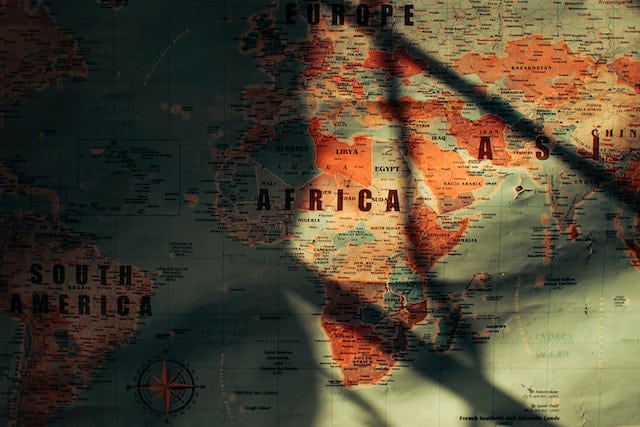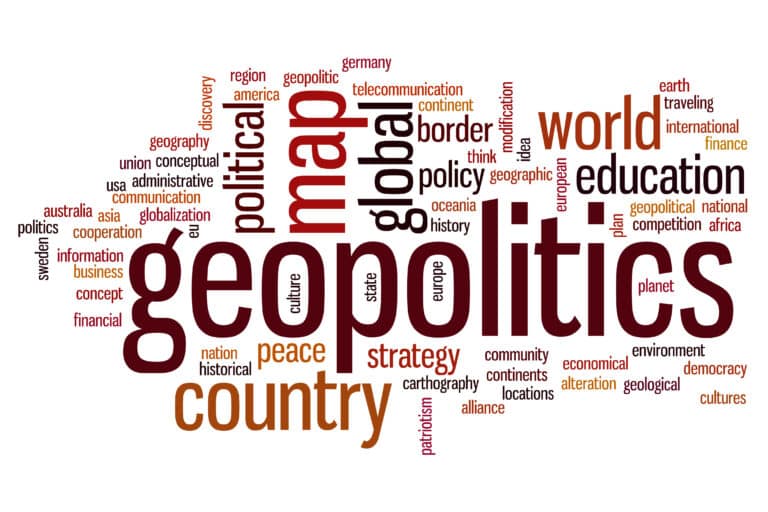The global supply chain is made up of a multitude of businesses, processes, regulations and legislation, government agencies, people and communities, and technology, in a highly complex relationship.
It is inevitable that illegality also forms a part of that mix, as corrupt individuals and companies seek to exploit weaknesses to achieve a personal or commercial advantage.
The impact of those individuals and their corrupt activities is far further reaching than most people realise. Corruption isn’t simply a few people being bribed with a new car or a brown envelope, but something that ultimately is the root cause of poverty, lack of security, and economic failure.
The United Nations estimates that the cost of corruption to the global economy is around 5% of global Gross Domestic Product (GDP), or US$2.6 trillion. US$1 trillion of that sum is estimated to be in bribes alone.
Corruption and how it works in the global supply chain
There are numerous different activities that fall under the definition of corruption. Typically corrupt activities are concealed to allow activities to continue unchecked. It can occur anywhere that there is a vulnerability, particularly where counter corruption measures are weak or non-existent.
Grand and Petty Corruption
‘Grand’ and ‘Petty’ corruption separate corruption into two clear categories. ‘Petty’ corruption, sometimes referred to as bureaucratic corruption, suggests the involvement of public sector officials, usually those officials who are not elected. Petty corruption typically includes the payment of bribes to enforcement officials; law enforcement or customs officers, for example. ‘Grand’ corruption includes political corruption and state capture. It is so-called due to the nature of the individuals involved. Senior public officials or elected officials would typically be involved in acts of ‘Grand’ corruption.
Political corruption involves those officials subverting the law that they are entrusted to uphold for their own gain. State capture is the act of influencing government officials, legislation, or regulation in a sector for personal gain. Extractive industries or energy are two examples of sectors where corruption has been identified as an ongoing challenge.
Neither ‘Grand’ nor ‘Petty’ corruption can be categorised as less impacting than the other, and often both exist together.
With regard to the global supply chain, corruption can be separated into four areas.
Demand Side Corruption
This refers to the solicitation or acceptance of an illicit payment or an undue advantage.
Examples include: a government official receiving or accumulating illegitimately an undue personal advantage for acting (or not acting) in the performance of their duty, disregarding the public interest; and, an individual in a private company demanding a bribe to facilitate or impede a contract.
Supply Side Bribery
This refers to the act of offering an illicit payment or advantage. For example, the sales manager of a corporation offers a bribe to a public official to win a government contract or enter a new market.
To that end, the US Foreign Corrupt Practices Act of 1977 (FCPA), generally prohibits US citizens and companies from bribing foreign officials to assist in obtaining or retaining business. This can apply to prohibited conduct anywhere in the world and extends to publicly traded companies and their officers, directors, employees, stockholders, and agents.
Organised crime, corruption, theft, and racketeering
Organised crime gangs can operate within supply chains to either piggyback the shipment of arms, narcotics, or people in legitimate shipments of goods or by circumventing legal jurisdictions by bribing or coercing officials to ‘look the other way’. Other activities include money laundering, racketeering, and terrorist financing as well as theft of assets and money.
Abuse of Entrusted Power
It’s not just organised crime gangs that seek to subvert the supply chain for their own gains either.
In the case of the abuse of entrusted power, the corrupt actor is typically an elected politician or public sector official responsible for taxpayers’ money.
For example, South African President Jacob Zuma has been charged and prosecuted on numerous corruption charges including money laundering, racketeering, fraud, and bribery.
As an elected official, Zuma was entrusted by the South African people to represent their interests. His wholesale subversion of individuals and organisations to extract money and assets for himself, his family, and his cronies is a prime example of the abuse of entrusted power.
The Impact of Corruption on the Global Supply Chain
One of the most common impacts of corruption is that private or public sector organisations overpay on contracts or goods and services. This enables the bribery of individuals or companies at the expense of the end-user or local taxpayers.
The result, inevitably, is higher prices working up the supply chain leading to buyers, including members of the public, overpaying for goods and services. Supply chain disruption is common too, with delays and failure to deliver services a common occurrence where corruption is discovered.
In the case of public procurement, it means the reduction of available finance for public services. Many public procurement contracts can be worth billions of dollars for major construction projects, for example.
Not only that, but supply chain corruption erodes trust between buyers and suppliers, and can cause long-term problems for businesses and their viability, not to mention reputational damage. Trust in brands is eroded, and despite the best efforts of an organisation to overcome and defeat corruption, it is something that will tarnish a brand far into the future.
Some companies may not do business in countries where corruption is known to take place, particularly US companies that are subject to the FCPA for fear of prosecution in their home jurisdiction.
This reduces opportunities in those nations, impacting economies, and employment opportunities. Corruption can become endemic, attracting in companies and nations who seek only to extract resources and wealth, with little benefit and all of the disadvantages to local economies.
Counter Corruption vs Anti Corruption Methodologies
Anti-corruption measures are defined as those measures that are designed to oppose, discourage and punish corruption. This is achieved through legal processes in the case of punishment. In essence, it is a reactive approach to dealing with corruption; finding it, investigating it, and putting a stop to it. This is the fundamental concept of anti-corruption. Counter corruption takes a different approach.
In this methodology, counter corruption processes and structures are designed to put in place what is required to prevent corrupt activities from occurring and proliferating. In the event that corrupt activities do take place, counter corruption is designed to bring it to a swift end, protecting the organisation from the activity of one or several individuals.
There is a significant point of difference between the two approaches. In the case of anti-corruption, the purpose is to seek out those individuals who take part in corrupt activities, whether that’s bribery, money laundering, or racketeering. The implication is that the individual, organisation, or country affected does not have sufficient processes in place, and leaves itself exposed. At this point, the process is one of damage limitation and ‘cure’ rather than preventative measures.
Where is the Counter Corruption Battle Fought?
The global supply chain is vulnerable to corrupt practices where compliance and counter corruption methodologies are not fit for purpose. Good supply chain management must include suitable counter corruption measures that prevent corrupt activities from happening in the first place, identify any such activity quickly and deal with it decisively should corruption be discovered.
But it isn’t simply the case that measures are put in place to ensure robust supply chain management. An organisation, whether public or private sector, involved in the global supply chain, must put in place counter corruption measures that encourage and develop a culture that rejects corruption in all its forms, from shareholder and board level all the way through the many layers of an organisation. Measures must be in place to protect processes and practices and to empower individuals to report corruption where it is suspected without fear of reprisal.
This culture and practice must be embedded in supply chain partner organisations too and throughout the supply chain.
Examples of Corruption in Supply Chains
ESKOM in South Africa where ABB, a Swiss firm, was implicated in corrupt activities to win contracts for the Fusile Power Plant
President Jacob Zuma of South Africa was charged with multiple corruption charges for money laundering, fraud, racketeering, bribery, interfering in contracts and publicly owned organisations
Operation Car Wash in Brazil, where investigators working on a money laundering case uncovered bribery and bid-rigging involving state-owned oil company Petrobras. Some of Brazil’s largest construction and engineering companies were found to have been paying billions of dollars in bribes to secure contracts from Petrobras over a period of years. Dozens of government officials were found to be involved.
The Chinese Belt and Road Initiative in Africa has been beset with allegations of corruption. For example, concerns are rising that Kenya will be unable to maintain repayments to China for its $4.7 billion railway which has been plagued with controversy over corruption, procurement, and labour practices.
In its first three years of operation, the project has lost $200 million. It has become so controversial that China has refused to build the remaining section of the railway. In fact, Mombasa Port serves as collateral for the project. The operating contract was awarded to Afristar, a subsidiary of Chinese state-owned China Road and Bridge Corporation.
The Horse Meat Scandal in Europe in 2013 uncovered a breakdown in traceability and fraud in the food supply chain, where horse meat was relabelled as pork or beef. Major retailers moved to terminate relationships with brands found to be supplying horse meat products, and sales of hamburgers fell by 43% in the EU after the scandal was uncovered.
Scandals such as those described here can be detected and prevented if the right measures are put in place and if a company takes on a culture that rejects corruption in all its forms.
Pavocat’s Answer to Managing Supply Chain Risk
For a business to defeat corruption in the supply chain, where a business may be exposed to external corrupt actors presents challenges that are not easily overcome. Whilst anti-corruption measures will identify corruption and corrupt actors when they are committing their malign acts, they will not protect a company’s integrity, particularly if that company is entering new markets, or working in an environment where corruption is known to be an issue. There are ample opportunities in the global supply chain for opportunists to commit both ‘Grand’ and ‘Petty’ acts of corruption.
Pavocat has developed the PAYDIRT System, based on the counter corruption methodology of prevention, education, and cultural change.
PAYDIRT provides the full spectrum of integrity and compliance services to companies and organisations which either require specialist support or do not have the necessary capacity or capability to manage these complex issues themselves.
Pavocat works with boards of directors and executive management to put in place all the systems and processes needed to ensure they fully address existing and emerging compliance requirements.




